My wife and I formalized our fairy tale romance and married each other ten years ago, on a Tuesday morning.
There was no one else present; we rented a penthouse suite in downtown Portland, dressed in our sacred garb, and at the appointed hour, friends and family around the globe lit the candles we had sent to them, and wished us well as we said our vows to each other in solitude.
From that day to this, over the past ten years, I have enjoyed a deep and meaningful connection with my partner, a bond that has blossomed and ripened over time.
To keep that connection solid, and growing, and fruitful, I have applied the wisdom learned from the following ten lessons:
1. Keep dating.
Dating continues after marriage, if you’re doing it right.
Regular dates, even if they are just short check-ins, give occasion to connect with your partner,and ask, “What do you need? How are we doing right now? How can we live this life better, together?”
After you run out of new things to talk about, how do you manage to still grow with your partner, and continue to learn more about each other?
A great relationship is a journey into each other’s personalities, as you both evolve over time. The space for that evolution is made during the dedicated, focused time you spend with your partner.
My wife and I have three kids and precious little free time. We get up early and have coffee together every morning for ten minutes, and just sit, and talk, and enjoy being together.
2. Surprises and gifts matter.
This is the easiest way to keep the spark of novelty in a long-term relationship.
Every surprise is new, and unexpected, and exciting.
When you give excitement to your partner regularly, your partner will find ways to reciprocate. Both of you can have a great time making each other happy.
3. Do easy things that are hard for your partner.
My wife hates the dishes. I hate putting away the laundry. I happen to like the rhythm of doing dishes, and my wife doesn’t mind sorting and folding clothes.
We divide the chores according to our temperaments, and anytime there is an action or activity that visibly bothers our partner, we volunteer to do it, especially if it wouldn’t be much of a bother to do it ourselves.
I don’t want a chore to cause my partner grief if I wouldn’t mind it; when she suffers, we both suffer, so we save each other suffering as often as we can.
4. Never go to bed angry.
We had this rule for years in our relationship, ever since our first fight, which was about two years after we got together. We always stay up to talk it out, even if we’re tired. Especially if we’re tired.
Once, about a year ago, I went to bed angry for the first time. It was late, and my feelings were hurt, and Johanna woke me up to talk it out like we always do.
I sulked, refused, rolled over and went to sleep.
In the morning, I apologized, hugging my wife tightly for a long time. I renewed my broken promise to never go to bed angry.
Doing it that one time, stewing in all my hurt emotions as I slept, was enough to see how it tarnished the relationship so quickly.
My relationship means too much to me to treat it that way.
5. Always apologize.
It doesn’t matter what happened, who is at fault, what the intentions were, or what was misunderstood: apologize. Tell your partner that you are sorry if they are upset, even if for no other reason than just that they are upset.
When my wife is upset, I am genuinely sorry she is distressed. By acknowledging that right away, I am not her adversary, I am on her side.
It’s also really good to acknowledge how your partner feels, and take a moment to explain the situation from their point of view.
This shows that you understand it, or reveals that you don’t, and cuts right to the heart of a misunderstanding. If I can’t explain my wife’s side correctly, she can precisely walk me through the point she wants me to understand that I’m not getting.
6. Hold hands when you’re fighting.
You can’t let the fight get out of control if you have a constant physical reminder that you are both on the same side.
Everything you discuss is from a plural perspective. “We” can’t get mad at one of us for something. We’re both in this together.
We have also found it really helpful, in tense discussions, to prefix things that could sound hostile with “I feel that…” because nobody can deny that you are having a feeling about something.
If my wife says “I feel that you said this because you blame me for something” I can talk to her about that feeling, instead of getting defensive because she said “You’re blaming me for something.”
7. Compliment each other constantly.
My wife is my biggest fan, and I am hers. We make sure to tell each other all the time how awesome and amazing we are.
Anytime I notice something new, or beautiful or noteworthy about my wife, in her appearance, or the way she turns an idea, or the way she smells, or the way she makes me feel – if I like it, I tell her, and I thank her. She does the same for me.
Our time together is spent singing the praises of the one we love most in the world.
It’s great to make your partner feel loved.
8. Structure your life around your dreams, not your dreams around your life.
When your life is focused to reach a dream, a dream that one or both of you have, then any difficulty is just an obstacle on the way to that dream.
When you try to fit your dreams into the confines of your current life – your life as it is right now, this fragile, inconstant set of circumstances that happened to last up until the present moment – then your difficulties are further reasons why you can’t break out of your box and go live your dream.
Big big dreams will live outside of your life, and you might start to resent your partner for keeping you in the box.
Johanna and I live an adventurous life, because we discard those systems of our life that don’t allow us to pursue our dreams. Sometimes it’s uncomfortable, or inconvenient, or challenging, but it keeps us moving in the right direction.
9. Allow each other space to be an individual.
Couple time is important (as is family time with kids) and most of your recreational hours are set to this default.
But you both need time by yourselves, as well. Especially if you have kids. There is a reconnection to yourself that you get in solitude. You can’t be the best partner if you don’t have that internal connection to yourself.
10. Connect physically and cuddle often.
Our bodies know each other. Year after year, the physical connection of touch, of familiar skin on skin, provides a foundation that you can rest an entire relationship upon.
But without regular touch – there is no home embrace to return to, and that’s where the relationship really lives.
There are three entities in a relationship – yourself, your partner, and the relationship between the two of you. Each of these entities has different needs and desires, and they all work best when loving each other fully.
A physical symbol of our union with our partner is a way to honor and celebrate the relationship itself. Holding hands, long deep hugs, vigorous sex, they all dissolve the ego and reveal the “we” that you are a part of underneath it all.
When we feel like we haven’t seen each other for some time, my wife and I will catch one another’s hands, put our foreheads together, and close our eyes to breathe deeply together for a few breaths.
By stealing a moment to let our relationship incarnate itself, we invoke that greater being wherein we dwell, and share solace in returning home.
And now, some wedding pictures:
I am blessed to have found such a wonderful and loving wife. By sharing this relationship with her, I have been privileged to love someone so fully, so whole-heartedly, that I lose myself in the bliss of my adoration.
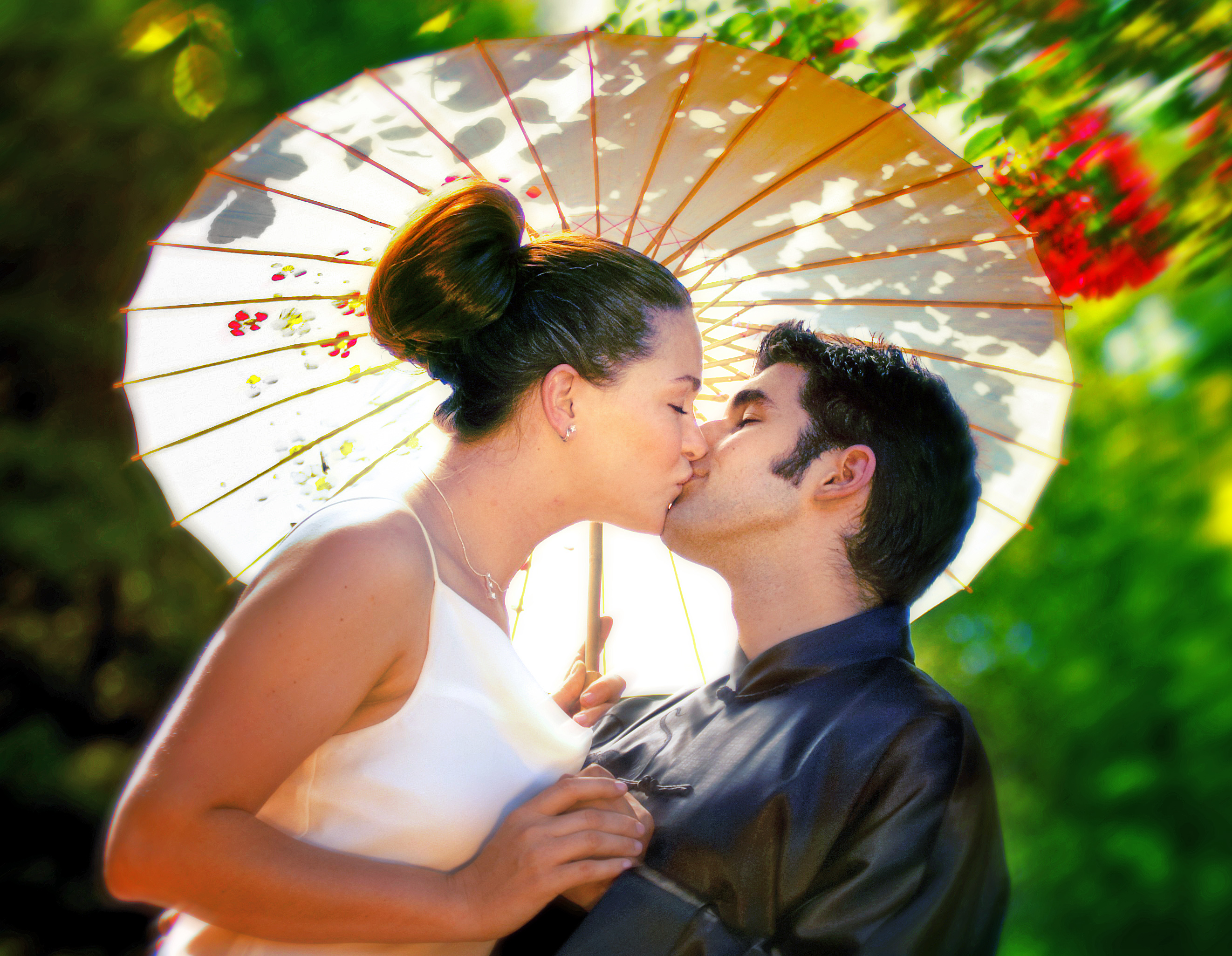
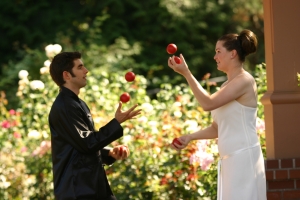
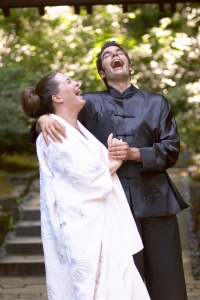

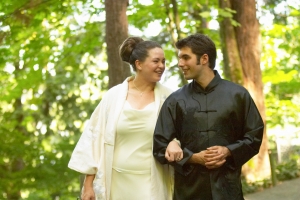

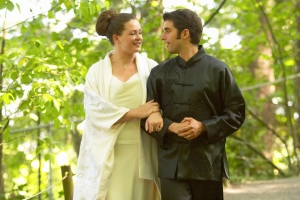
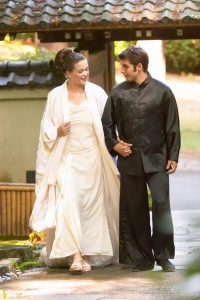




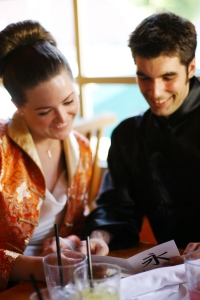
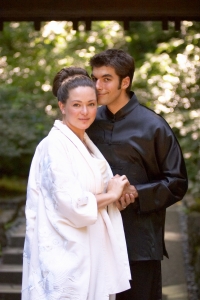










Thanks for sharing your Brilliant, Beautiful and Beneficent Wisdom!
This is a great list! At 9 years married and almost 18 years in partnership with my Beloved, some of these are old hat, and some are great reminders. I especially need the reminder to compliment each other ~ he is much better at that than I am. And a perspective I love on arguments that resonates with #6 is rather than thinking of it as you against me, reframing it to you and me against the problem, and working it out from an assumption of being on the same team. Thank you for the peak into your love and life!
[…] best date of my life – when we reached 10 years of marriage, my wife and I had one helluva date. It took all day, and we went to all of our favorite places in […]
[…] had known we would marry each other ever since we met. We both knew within a week of dating that our search was over, and we would […]
[…] Caelan’s reflection on 10 years ofvulnera marriage: 10 Lessons From 10 Years Of Marriage […]